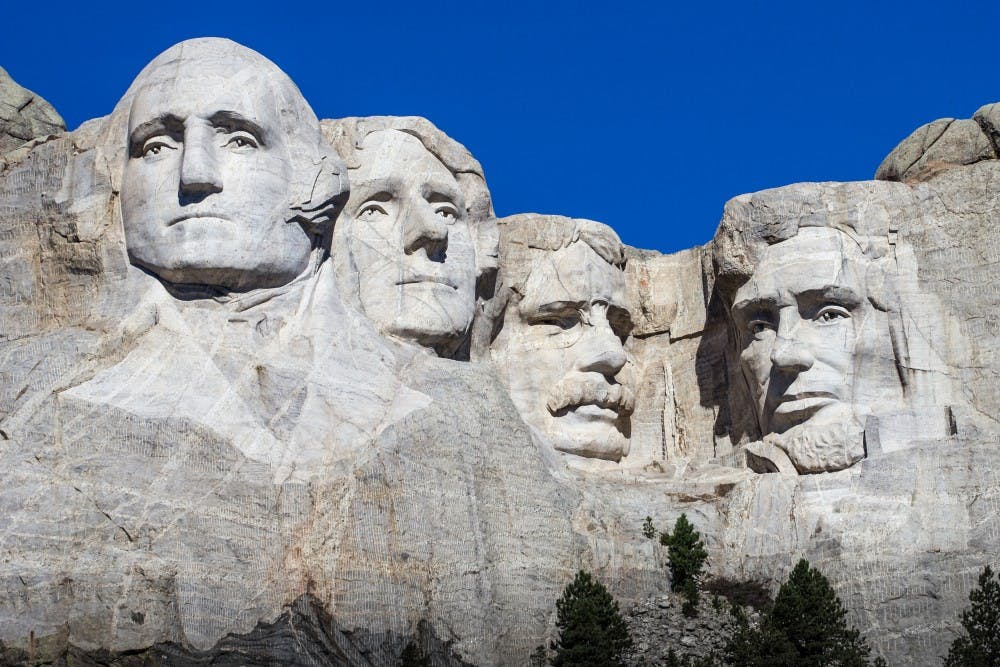
Another full week is almost over. But there’s something a bit strange about that statement. By now, many of us have likely forgotten this, but there was a national holiday just a few days ago. President’s Day went by with nearly no acknowledgement by anyone on campus, let alone a day off from classes. Fortunately, I found myself perfectly willing to forgo my homework and figure out why this holiday is considered less important than so many others by our University.
Here are the questions — and answers, helpfully provided by the internet — that I found more pressing than what my professors had assigned this week:
What makes something an official holiday?
Federal holidays, in the U.S., are holidays that have been recognized by the government. Non-essential federal offices close, and these workers are paid. Private-sector employees may be required to work or may receive the day off. The original four federal holidays were New Year’s Day, Independence Day, Thanksgiving Day and Christmas Day. The list has now expanded to 10 holidays.
Public holidays, on the other hand, include a much longer list. Not government enforced, though often recognized, public holidays span from Halloween to Valentine’s Day to Mother’s Day. Each state can decide what will be designated as a public holiday, and what observation will look like. Several states have holidays that are exclusively their own, or have modified common holidays to recognize certain aspects of their history.
What is President’s Day?
Officially, there is no such thing. Officially, the title of the day is Washington’s Birthday, and it was meant to celebrate President George Washington alone. Started in 1879, the holiday used to actually fall on Washington’s birthday, but this hasn’t been the case since 1971, when the Uniform Monday Holiday Act was established to allow for three-day weekends. [The Act is also the reason that Memorial Day, Labor Day and Columbus Day are all on fixed Mondays of their respective months.] Because the holiday always falls between February 15 and 21, it never actually occurs on Washington’s birthday, Feb. 22. It also never falls on Abraham Lincoln’s birthday, Feb. 12. However, because the two presidents have birthdays so close together, the holiday became commonly known as President’s Day, despite still officially carrying the title of Washington’s Birthday. The public change in terms occurred during the 1980s.
Interestingly, because President’s Day is not the holiday’s official name, there is no official spelling for the holiday, and it varies on a state-by-state basis. The majority of states use the word “President” somewhere in the title. Some states do refer to the day as “Washington’s Birthday” (though it never is), some mention both Lincoln and Washington in the title and some even refer to Washington and someone else. Maryland uses the title “President’s Day.”
Why are there classes on some holidays but not on all of them?
Usually, it depends on the importance and context of the holiday that is being commemorated. On our campus it is commonly understood that Christmas is a day when there would never be classes: A significant percentage of students and faculty are celebrating the day. However, this is not the case everywhere. Private religious schools in which no students are Christian, for example, do not necessarily give students the day off.
Similarly, it is the individual institution’s responsibility to decide whether there will be classes or whether businesses will be open on holidays such as President’s Day. Since the day is not commemorated in major ways by most, many universities hold classes on President’s Day. On other days, such as Labor Day, to do so would be viewed as unacceptable.
Are there unofficial holidays?
Of course there are, and many of them are so commonly known that it almost feels as though they are officially recognized. Some of these holidays are generally known and observed by the public in some way, such as April Fool’s Day; some will likely be ridiculed if they ever become official holidays, such as Super Bowl Sunday. On almost any day, it is likely that there are several unofficial holidays ready to be popularized by social media for 24 hours before being forgotten. In the coming days, for example, get ready for Introduce a Girl to Engineering Day, International Sword Swallowers Day and Museum Advocacy Day. Or just get ready for the most exciting of all: Girl Scout Cookie Weekend.





